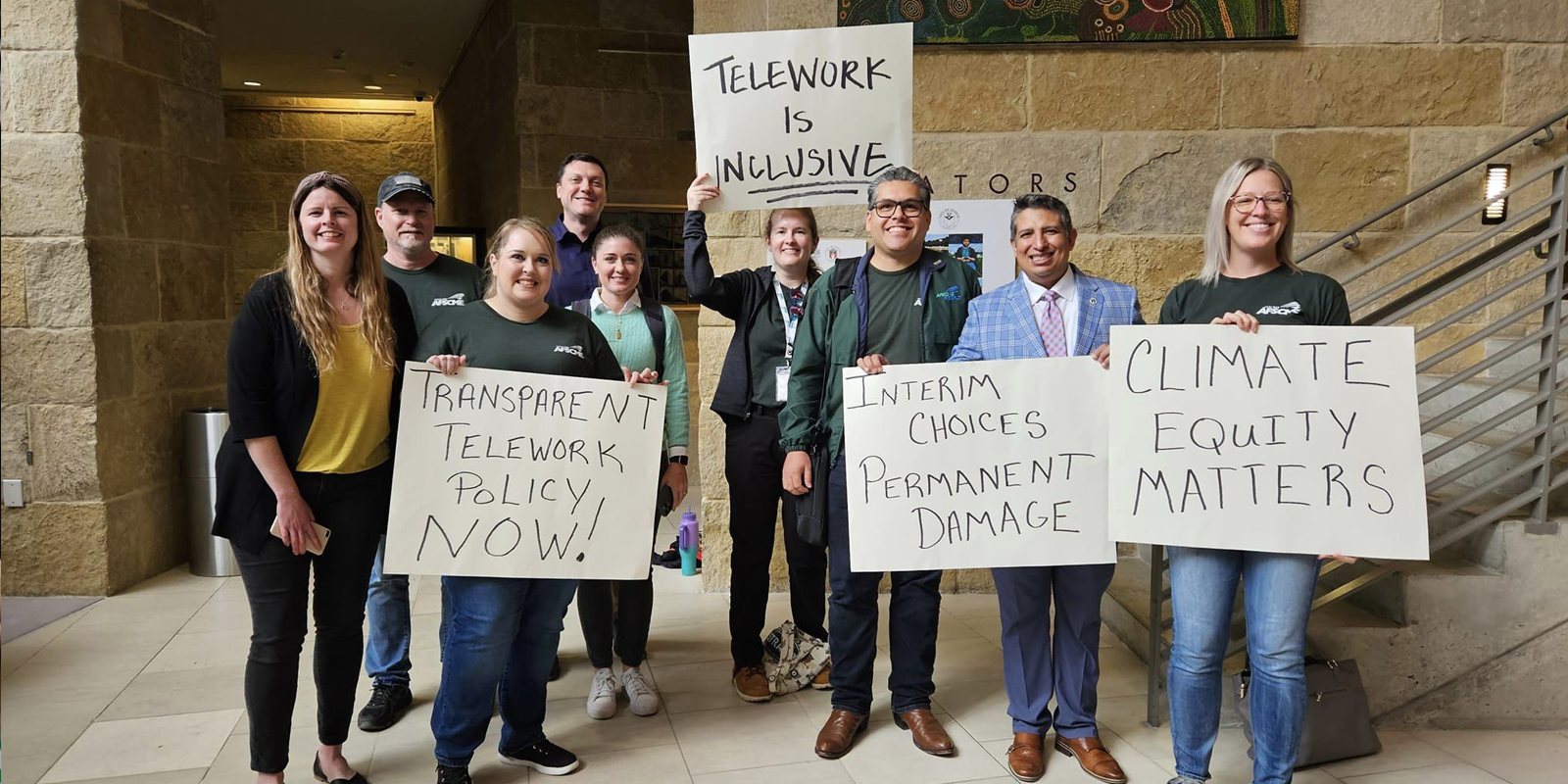The persistence of AFSCME Local 1624 members has protected thousands of Austin city workers’ telework schedules that were on the chopping block.
This past summer, the interim city manager shocked city workers when he announced a return-to-work policy that mandated employees to report to the office at least three days a week, a stark change from the mostly 100% telework schedules they had been working since 2020 due to the COVID-19 pandemic.
Since the announcement, Local 1624 members have rallied for telework at City Hall, mobilized each other through one-on-one conversations, and negotiated with the city to maximize telework for employees who are able to perform their jobs remotely.
They achieved the following:
- Identified more than 1,000 positions that are eligible for 80%-100% telework schedules. Department directors may add even more positions to this list;
- Made sure thousands of positions are eligible for 50% telework, and that these employees are able to schedule their telework days per pay period rather than per week;
- Established an impartial process for employees to file for exemption if they believe they can telework for more than 50% of their work schedule.
A city employee who asked not to be named for fear of retaliation said her ability to maintain a 100% telework schedule is a necessary accommodation to perform her job because her immune system is compromised. The city’s human resources department originally declined this employee’s request for telework as an accommodation under the American with Disabilities Act, but members of Local 1624 negotiated with the department to appeal that decision.
“My job means so much to me,” the employee said. “The ability to work from home saved my job, and that takes a lot of stress off of me. If I had to come back to the office consistently, then it might just deteriorate my health. I wasn’t sure what avenues I was going to have and I thought I was going to have to look for another job.”
Teleworking not only provides much-needed accommodations and work-life balance for workers, but also makes transformational improvements to the city. According to a post on Local 1624 members’ blog, telework schedules decrease Austin’s carbon emissions and traffic, helping the city achieve its goals of net-zero carbon emissions by 2040 and improved mobility for everyone to get around Austin.
“Aligning the policy with climate and mobility goals should encourage management to do their part by allowing the maximum amount of telework that is feasible,” members wrote. “The City of Austin can’t encourage the community to work towards these goals if they do not do so themselves.”
